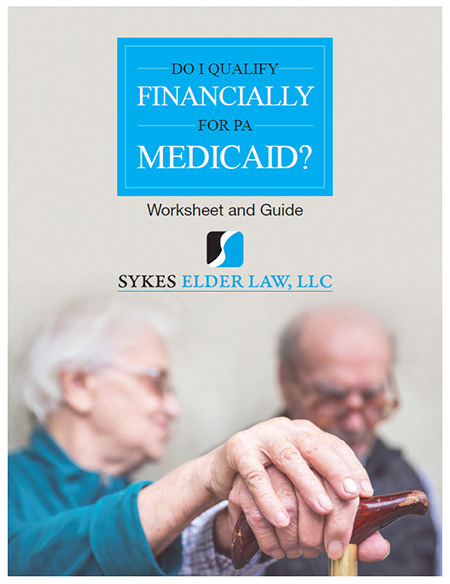This blog post is the ninth chapter of a series entitled “How to Qualify for Medicaid in Pennsylvania”. This post discusses whether a Medicaid applicant’s children may be liable for care costs. Qualifying for Medicaid can be confusing and complicated, but this guide explains it in plain English. If you would like to order a copy of the complete guide click here.
You may be surprised to learn that Pennsylvania law provides that the spouse, parent, or child of an indigent person has “the responsibility to care for and maintain or financially assist” that person, and that this responsibility applies “regardless of whether the indigent person is a public charge.”
(There are two exceptions. A child is not liable for support of a parent who abandoned the child for 10 years while the child was a minor. No person is liable under this law if there is a financial inability to pay support.)
How Are Pennsylvania’s Filial Support Laws Enforced?
Before you panic, though, keep in mind that the state of Pennsylvania does not generally bring support actions against family members whose relatives have run out of money and qualify for benefits. (Whether the law would even be enforceable for that purpose is questionable.) Medicaid, veterans benefits, and other public benefits regularly assist in paying for long term care for seniors who lack the ability to pay.
But Pennsylvania’s support law has been used by nursing homes and assisted living facilities to hold family members responsible for the cost of care in certain circumstances.
Who Is Responsible for Nursing Home Costs?
One important factor is whether Mom or Dad reside in a nursing facility that is certified to receive Medicare or Medicaid reimbursement. Under the federal Nursing Home Reform Act, such a facility may not require someone other than the resident (such as a family member) to guarantee payment. A facility may require someone who has access to the resident’s income or resources to sign a contract to make payment from the resident’s assets, but such a person incurs no personal financial liability.
Facilities that are not certified for Medicare or Medicaid, such as personal care or assisted living facilities, have successfully sought payment from family members. In 2009, an Allegheny County judge allowed an assisted living facility to bring a lawsuit against a son of one of its residents for payment under Pennsylvania’s support law.
Responsible Party for Medical Bills
Another important factor is whether a family member has signed any kind of agreement to be a “responsible party” (or some similar term) for payment. Such agreements are not always enforced by the courts, but facilities sometimes use them to insist on payment from the signer.
When helping a relative with admission to a long term care facility, be sure you understand your possible liability to help make payments.
There have been cases in which a son or daughter of a Medicaid recipient has been held liable for costs of care. When these cases are publicized, they cause alarm and concern. These cases are generally explainable by the fact that the person held liable committed a wrongful act, or there is some reason to believe that assets did not go where they should have gone.
The state of Pennsylvania does not generally bring support actions against family members whose relatives have run out of money and qualify for benefits.
In one case, for example, the daughter of a Medicaid applicant allegedly used her mother’s power of attorney to gift herself approximately $160,000 of assets. The nursing home claimed it was owed $96,000 after the mother’s application for Medicaid was denied. In a lawsuit brought by the nursing home against the daughter, a Pennsylvania appeals court ruled that the daughter could be held financially liable for care costs.
Following Pennsylvania’s Filial Responsibility Law
Generally speaking, if an applicant for Medicaid follows the rules, avoids improper gifting away of assets, and makes sure to apply for benefits when eligible, there should be no reason that the applicant’s children will be held liable for care costs. If the nursing home has been paid fully by the applicant during a spend-down, or by Medicaid coverage, it will have no reason to pursue anyone else for payment.
As always, getting legal help early in the process can help avoid financial problems for family members.
This post is part of a series about “How to Qualify for Medicaid in Pennsylvania”
- Medicaid for Long Term Care
- Countable Assets
- Exempt (Non-Countable) Assets
- Asset Limit: Applicant & Spouse
- Spouse's Income
- When No Spend Down Is Necessary
- Gifting & the Medicaid Look Back Period
- How to "Spend Down" to Qualify
- Liability for Care Costs and Applicants' Children
- Medicaid Application Process
- What Happens After Medicaid/ Approval
- Medicaid Waiver Program
- Estate Recovery – What Happens After Death?
14. What is Medicaid Planning?






